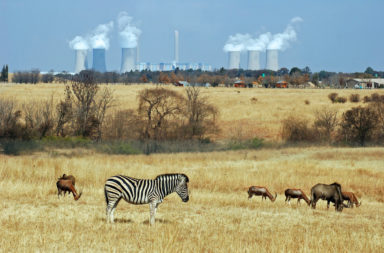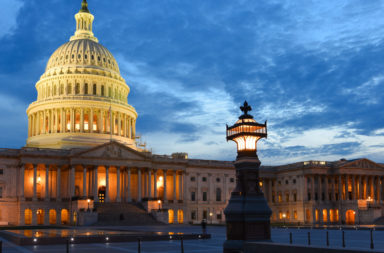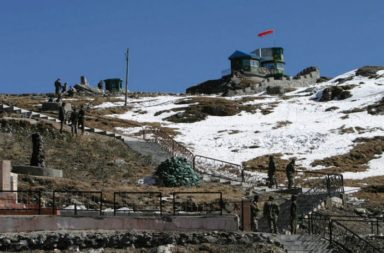China has seen a fast moving, and at some points turbulent, 2016.
In January, Taiwan’s independence-leaning Tsai Ing-wen won the island’s presidential election by a comfortable margin, in July an international court handed down a landmark ruling against China’s claims made in the South China Sea. And in November, Donald Trump beat Hillary Clinton to become the next president of the United States.
With all of that to digest for China, there are many issues that will draw our focus for 2017.
- China will look to keep its economic growth steady amid global turbulence.
- Hong Kong to see a chief executive election
- Taiwan’s President Tsai Ing-wen will need to be reigned in.
- Fears mount over the erosion of the ‘one China’ policy with the new US presidential administration.
- Trump will surely rock the boat and has made repeated incendiary remarks over his campaign related to China
- TPP and RCEP are now up in the air
- Brexit will affect China, it remains to be seen how
- South China Sea relations reaching boiling point with every increasing military presence in the region
- China’s commitment to the environment is as challenging as ever
Will China meet its ambitious growth targets?
China has a slowing economy, although it has held growth steady at 6.7 percent throughout the first three quarters of 2016, it still faces huge challenges. Goldman Sachs expects China to back off its aggressive growth targets somewhat:
Goldman Sachs: #China likely to slightly lower 2017 #GDP growth target
— YUAN TALKS (@YuanTalks) December 20, 2016
The government is trying to keep the country’s GDP growth consistently above 6.5 percent, but the US Federal Reserve has raised interest rates in December, and more are expected to follow in 2017.
This means China has been forced to reintroduce capital outflow restrictions in order to defend the Yuan, along with squeezing liquidity to prevent financial risks.
China will remain on high alert against asset bubbles, most notably in property, most likely by increasing down payment ratios and property taxes. The worrying sign here is that the recent property restrictions have slowed sales and may hit the overall property investment market, a long standing economic driver.
Goldman on China “We expect the policy tightening that started in early October to weigh on activity growth in December 2016 and early 2017”
— zerohedge (@zerohedge) January 2, 2017
How will China handle Taiwan’s President, Tsai Ing-wen?
China will want to squeeze her into submission. The cross-strait relations are set to be affected by a plethora of issues, including Trump’s China policy and the governments resolve to punish pro-Taiwanese independence.
Huge waves were created in Beijing before Trump has even taken office because he accepted a congratulatory call from the self-ruled island’s leader after the election, and went on to question whether the US should continue its “one China” policy.
Like a “Punch” to the Face of China Xi Jinping, Taiwan President Tsai Ing-wen will meet with U.S. Congress and #PresidentTrump on 07-01-2017 pic.twitter.com/9bC07s8UYL
— Voice of Viet Nam (@VoiceofVietnam) December 23, 2016
This is taken extremely seriously by China and unfortunately sets Taiwan up to be more of a victim than a beneficiary as Beijing contemplates their reaction.
For example, Taipei says Beijing has limited the number of mainland tourists to the island, hitting its already-struggling economy. Their hard-line stance does not appear to be fading in 2017.
Beijing still sees Taiwan as a renegade province to be retaken by force if necessary.
The Trump effect
Sino-US relations look to be as unpredictable and bumpy as ever before. Trump has made numerous provocative remarks on China along the campaign trail, frequently calling them out for unfair trade and currency manipulation. He has threatened to impose up to 45 percent taxes on Chinese imports and wants companies like Apple to move their manufacturing bases back to America.
China 2017 in 6 tweets:
5. Stronger U.S. growth could drive exports, Trump tariffs could be a drag pic.twitter.com/fvXgZW3fc3— Tom Orlik (@TomOrlik) December 31, 2016
So far he has appointed hawkish China policy advisors, too.
Trump and his counterpart President Xi Jinping are set to at least meet at July’s G20 summit, unless bilateral visits are organised before. How they interact at the summit could set the stage for the future.
The fear is that if Trump does penalise China in trade, they will counterpunch with cutting US imports or sanctioning US firms, thereby creating a trade war. Perhaps Trump sees Taiwan and the “one China” policy as a bargaining chip, but the Chinese consider that to be non-negotiable.
Obama cooperated well with Xi on climate change; perhaps Trump can bond over counter terrorism and coming to a resolution for peace in the Middle East.
TPP – is it truly dead in the water?
The prospect of international trade has taken a hit, post-election. Trump vowed repeatedly on the campaign trail to pull out of TPP. The agreement has been signed by its 12 member countries in the Asia-Pacific, but is yet to be ratified and many believe that it will fall apart without American participation.
China’s answer to TPP is the ‘Regional Comprehensive Economic Partnership’ (RCEP) which includes countries like Australia, India, Japan and New Zealand is beginning to take centre stage.
Will Brexit strengthen or weaken ties between China and Russia?
The impact of Britain’s decision to leave the EU has already had some impact in China, with a lower pound-yuan exchange rate. This has led to more tourists nad students planning to visit or study in the UK.
Leaving the EU means the British government will have to renegotiate trade deals and China will be a top priority. There will be more flexibility with the British government only having to account for themselves rather than the whole of the EU.
How will China approach diplomacy in the South China Sea?
China is becoming increasingly assertive in the region, militarily. Beijing has commissioned China’s second, and largest, aircraft carrier to date. Recent territorial claims and brusque diplomacy has lead to the straining of relations with key neighbours.
Tensions are also on the rise with the US over disputed waters and the US navy will likely increase its presence in the region to counteract China’s growth. Trump has announced he will build up the US navy, increasing its current 272-ship fleet to 350.
The Korean peninsula is another headache for Beijing given South Korea’s president resigning amid corruption claims and North Korea as unpredictable as ever with Trump calling out China for not helping tame them.
Will China meet its clean-air targets?
2017 marks the mid-term deadline for China’s three main upban clusters to meet their clean air targets. This includes Beijing-Tianjin-Hebei, Yangtze and Pearl river deltas.
While some improvements have been made in the river deltas, frequent bouts of smog in northern China have raised doubts about whether targets will be able to be met.
Green NGOs will find operations tough in China in 2017 as many will struggle to find a cabinet ministry or local agency to supervise their daily work due to new laws laid down by the Ministry of Public Security. Worst case scenario would see an exodus of such groups.
This is what it’s like to clean out an air filter in Beijing, China as the city deals with dense smog. https://t.co/YbSGZ3Bhb7 pic.twitter.com/MkYccBu8Rw
— ABC News (@ABC) December 23, 2016




